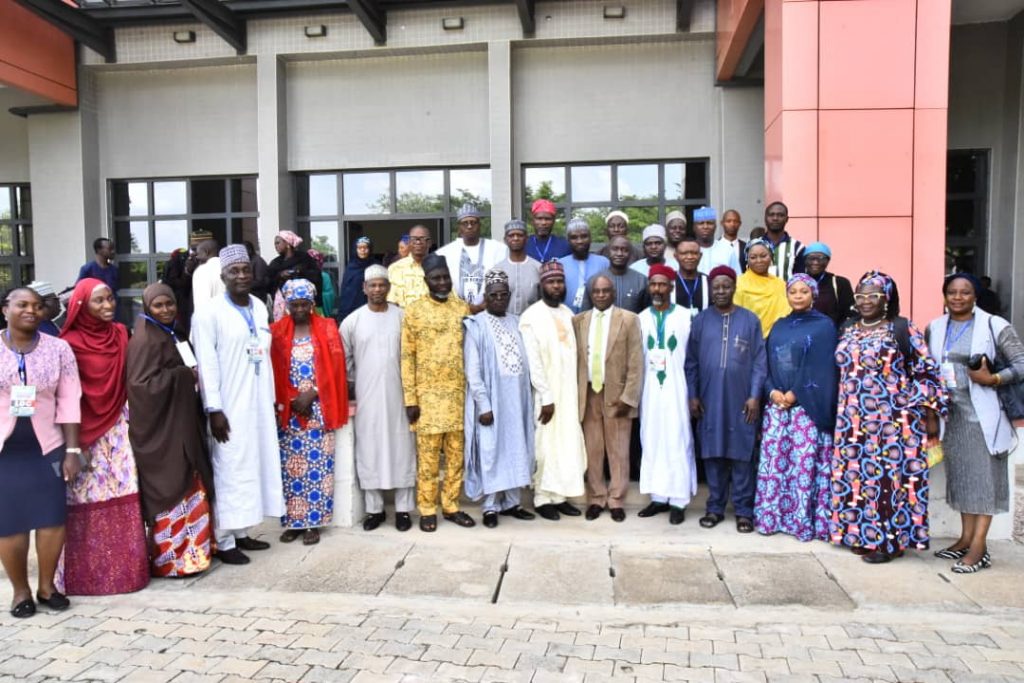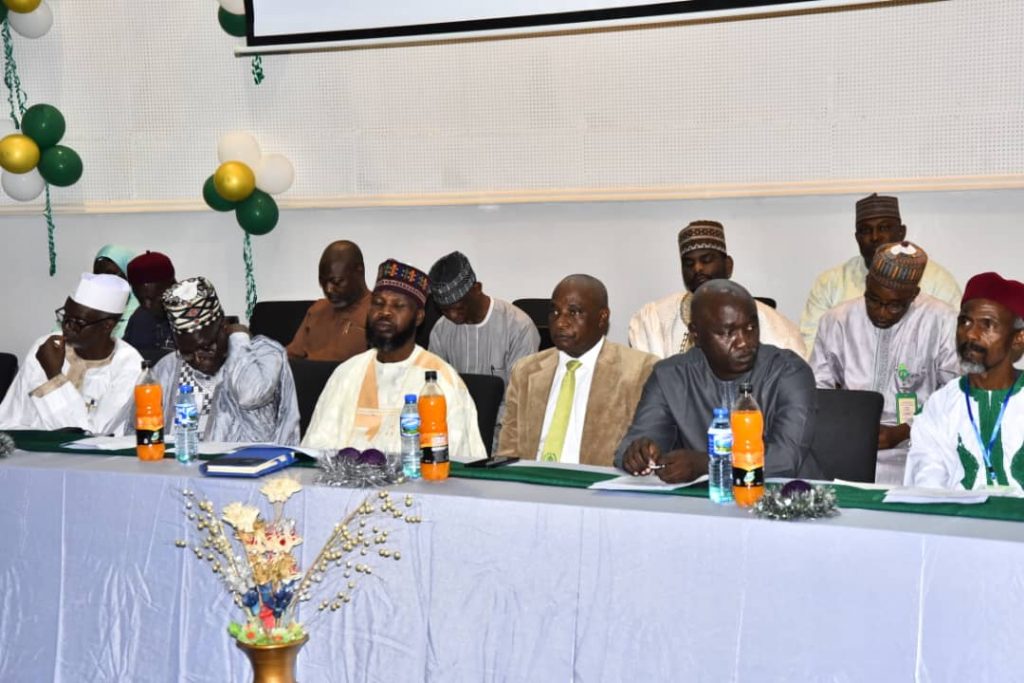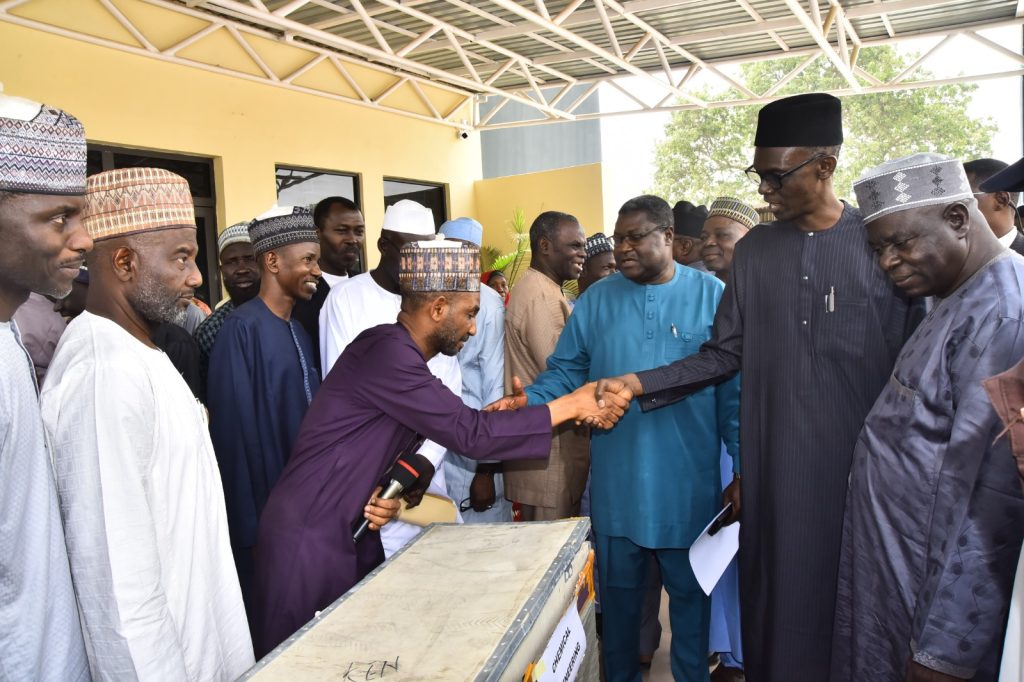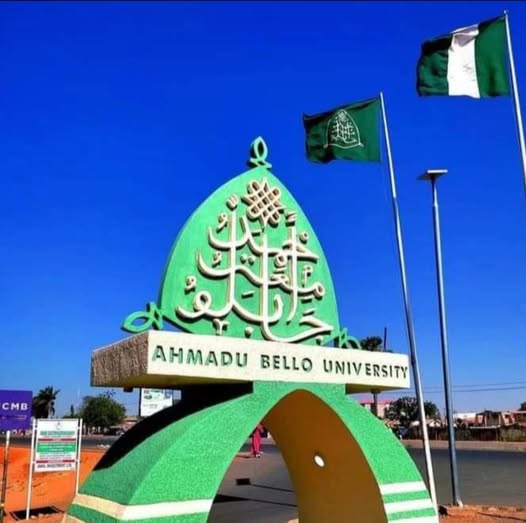The National Universities Commission (NUC) introduced the Core Curriculum and Minimum Academic Standards (CCMAS) to make university education in Nigeria more responsive to the needs of society and to address the various insecurities and socio-economic challenges, Chairman of the NUC Secretary Advisory Committee and Lead Consultant on the project, Prof. Peter A. Okebukola, has explained.

Prof. Okebukola, who gave a keynote speech at the 55th Science Association of Nigeria (SAN) Annual Conference at Ahmadu Bello University, Zaria, said that the new CCMAS was a product of sustained stakeholder interactions for over two years.
The Keynote Speaker was ably represented by the Dean, Faculty of Science, National Open University of Nigeria (NOUN), Prof. Kola Lawal.
Okebukola, who is the Fellow of the Science Association of Nigeria (FSAN) and former Executive Secretary of the National Universities Commission (NUC), explained that the composition of each panel took into consideration, the triple helix model as a unique feature.
This, according to him, involved a blend of academic experts, academies, government (represented by NUC), professional bodies, and the private sector represented by the Nigerian Economic Summit Group (NESG).
He said that science and technology must respond to societal needs and global challenges, stressing that members of the public must have an understanding and participate in science and technology to make informed personal and professional choices.
He also stated that the role of the Science Association of Nigeria was to ensure that governments make decisions based on quality science information and that the Senate must be advised to legislate on societal issues with the latest scientific knowledge.
The former NUC Executive Secretary further recommended that the communique of SAN’s 55th Conference should be sent to the President, Federal Executive Council, and the leadership of the National Assembly so that the administration could harness the power of science and technology.
Okebukola also said that SAN should periodically develop policy briefs on topical issues affecting national development with a bearing on science and technology, saying that these policy briefs should be forwarded to the government and make available to the general public.
He recommended that SAN should equally encourage members to network with colleagues outside Nigeria and seek sponsorship to attend workshops and conferences.
SAN, he further recommended, must encourage the government to invest in physical and virtual laboratories so that learners could advance the learning of science, develop students problem-solving and critical thinking skills, and be inspired to pursue STEM careers.
Prof. Okebukola stressed that the Association should encourage members to use their scientific knowledge and skills to contribute to the society and address global health, environmental and economic challenges.
He said that for him he had developed an indigenous mechanism factoring African cultural contexts and humour to teach and learn science subjects in secondary schools called the “Culturo-Techno-Contextual Approach (CTCA) which covers three segments-culture, technology, and context.
“The concept is homegrown, different from those by the Whites and its usage has significantly enhanced the teaching and learning of science, technology, engineering, and mathematics (STEM) subjects in Nigeria and by extension, Africa”, he explained.
…………………………
Public Affairs Directorate,
Office of the Vice-Chancellor
Ahmadu Bello University, Zaria
Tuesday, 4th July, 2023



